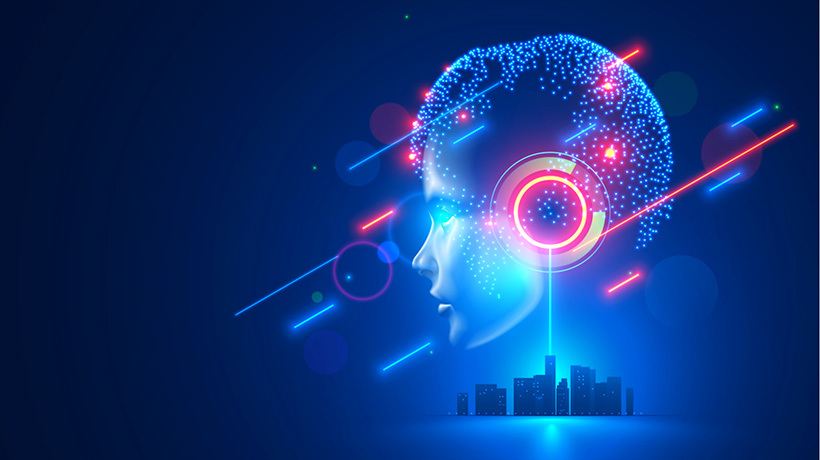As technology continues to advance, it has been revolutionizing various industries, including education. The introduction of Artificial Intelligence (AI) has made eLearning more accessible, interactive, and engaging. With AI, eLearning platforms can offer personalized learning experiences, identify knowledge gaps, and provide timely feedback to learners. In this article, we will explore the various ways in which artificial intelligence in online education is revolutionizing the future of learning.
Personalized Learning Experiences
One of the most significant advantages of AI in eLearning is its ability to offer personalized learning experiences. AI algorithms can analyze learner data, such as their learning history, interests, and preferred learning style, to create a customized learning path. This approach ensures that learners receive content that is relevant to their needs, interests, and abilities. With personalized learning, learners can learn at their own pace, which increases their retention and engagement levels.
Intelligent Feedback and Assessment
Elearning with artificial intelligence has also made it possible to provide intelligent feedback and assessment to learners. Traditional assessments, such as multiple-choice questions, do not offer much insight into the learner’s thought process. AI-powered assessments, on the other hand, can analyze the learner’s responses and provide targeted feedback. For example, if a learner answers a question incorrectly, AI algorithms can analyze their response and provide feedback that is specific to their mistake. This approach not only helps learners understand their mistakes but also helps them learn from them.
Improved Learning Analytics
Another significant advantage of AI in eLearning is its ability to provide improved learning analytics. AI algorithms can analyze learner data, such as their engagement levels, progress, and performance, to identify knowledge gaps and areas that need improvement. This approach allows instructors to intervene early and provide targeted support to learners who are struggling. It also enables instructors to modify their teaching strategies to ensure that learners are getting the most out of their learning experience.
Natural Language Processing
AI-powered chatbots have become increasingly popular in eLearning platforms. These chatbots use natural language processing (NLP) to provide learners with immediate assistance. Learners can ask questions, and the chatbots can provide them with instant responses. NLP also enables chatbots to identify the context of the question and provide relevant answers. This approach not only saves time but also improves learner engagement by providing them with immediate support.
Intelligent Content Creation
AI algorithms can also be used to create intelligent content. AI-powered content creation tools can analyze learner data, such as their interests and learning style, to create content that is relevant to their needs. This approach ensures that learners receive content that is engaging and tailored to their needs. AI-powered content creation tools can also automate the content creation process, which saves time and reduces costs.
Artificial Intelligence (AI) has been revolutionizing various industries and fields, and eLearning is no exception. AI technology is transforming the traditional approach to education and opening up new possibilities for personalized learning experiences. In this article, we will explore how AI is revolutionizing the future of learning and its potential to transform the education industry.
Personalization of Learning
One of the primary benefits of AI in eLearning is its ability to provide personalized learning experiences. AI-powered learning systems can analyze data on the learning behavior of individual students and provide personalized recommendations based on their learning style, preferences, and past performance. This enables students to learn at their own pace and in a way that suits their learning needs. Personalized learning has been proven to increase student engagement and motivation, leading to better learning outcomes.
Adaptive Learning
AI technology has made adaptive learning possible, where the learning system adapts to the needs and abilities of the student. Adaptive learning algorithms analyze the student’s progress and adjust the content and difficulty level accordingly. This ensures that the student is challenged enough to learn and improve but not overwhelmed or bored. Adaptive learning can also help identify knowledge gaps and provide remedial support, making learning more effective.
Intelligent Tutoring Systems
Intelligent Tutoring Systems (ITS) are a type of AI-powered eLearning system that provides personalized support and guidance to students. ITS can analyze the student’s learning behavior and provide real-time feedback and assistance. For example, if a student is struggling with a particular concept, the ITS can provide additional resources or explain the concept in a different way. ITS can also monitor student progress and provide insights to teachers and instructors, enabling them to adjust their teaching strategies and provide better support.
Chatbots and Virtual Assistants
AI-powered chatbots and virtual assistants are increasingly being used in eLearning to provide personalized support to students. Chatbots can answer common student queries and provide 24/7 support, making learning more accessible and convenient. Virtual assistants can also provide personalized recommendations on learning resources and activities, based on the student’s interests and learning style. Chatbots and virtual assistants can also assist teachers and instructors by automating routine tasks such as grading and feedback, freeing up time for more meaningful interactions with students.
Predictive Analytics
AI-powered predictive analytics can help identify at-risk students and provide early interventions to improve their learning outcomes. Predictive analytics algorithms can analyze data on student performance, behavior, and engagement to identify patterns and predict future outcomes. This enables teachers and instructors to intervene early and provide targeted support to students who may be struggling. Predictive analytics can also help optimize eLearning systems and resources, making learning more efficient and effective.
Conclusion
AI technology is transforming eLearning and revolutionizing the future of learning. AI-powered eLearning systems can provide personalized learning experiences, adaptive learning, intelligent tutoring, chatbot and virtual assistant support, and predictive analytics. These technologies are enabling students to learn at their own pace, in a way that suits their learning needs, and providing teachers and instructors with insights to optimize their teaching strategies. The potential of AI in eLearning is immense, and it will be exciting to see how it will continue to shape the future of education.
AI is revolutionizing the future of learning by providing personalized learning experiences, intelligent feedback and assessment, improved learning analytics, natural language processing, and intelligent content creation. With AI, eLearning platforms can offer learners a more engaging, interactive, and effective learning experience. As AI continues to advance, we can expect to see even more innovative ways in which it is used in eLearning.










